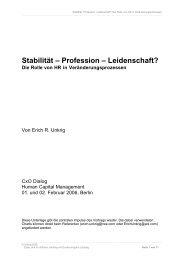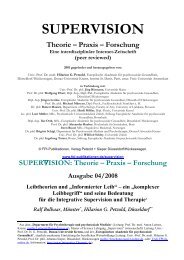Ilia Chavchavadze - brainGuide
Ilia Chavchavadze - brainGuide
Ilia Chavchavadze - brainGuide
You also want an ePaper? Increase the reach of your titles
YUMPU automatically turns print PDFs into web optimized ePapers that Google loves.
II. The aim of democratic state<br />
will, the legislative power based on the principle of representation are so-<br />
cially harmful. According to him, the representatives of people do not<br />
know, what really serves its interests, i. e. „people do not know, what its<br />
own real will is“; only „the most competent“, the most qualified states-<br />
men should be in charge of political affaires. At this, Hegel, determining<br />
the membership for the Upper Chamber of his model of parliament of<br />
two houses on the basis of class representation, is clearly at variance with<br />
the principle of competence, since a class affiliation does not mean the<br />
competence yet; if does, only obviously „tendentious“. To say in a short<br />
way, Hegel tries to restrict democracy by monarchism more than conversely.<br />
At the same time, Hegel finally demands to compose only executive<br />
from „experienced“ officials, what we cannot f. i. say of Plato, because<br />
with him the actual institutional division of political power is still unknown.<br />
As Plato – or Socrates as well – says, only „veritable philosophers“<br />
should be in power, he completely excludes the effectiveness of<br />
public will in political activities, since the common will and interest are<br />
here also separated by the political „sagacity“ strange for general public.<br />
In discussing context, I. <strong>Chavchavadze</strong>’s point of view is evidently<br />
different from Hobbes’s too. Hobbes, refusing the priority of public will<br />
and representation based on it, tries to substantiate the preference of monarchism<br />
to democracy in the light of maintenance of piece and security.<br />
As Hobbes says, „the monarch cannot come into conflict with himself out<br />
of envy or partiality, but the assembly may, even so severe that it may<br />
come to a civil war“. Accordingly, it is plain that, with Hobbes, the realization<br />
of general interest – legal-politically – has nothing in common with<br />
fulfilness of general will. At the same time, it is also clear that the discord<br />
between public will and public interest may compose the subject of discussion<br />
just as an exception, and the thesis, based on the exception, is the<br />
only factor, which in Hobbes’ point of view speaks for „preference“ of<br />
autocratic monarchy to democratic system.<br />
131
















